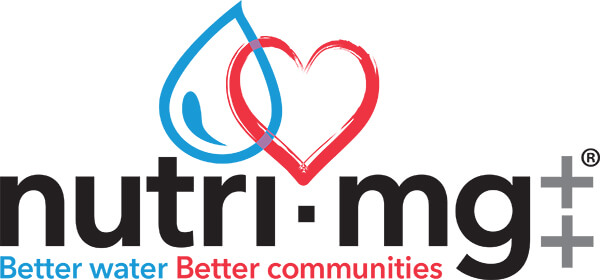The risk relationship between hard water and reduced cardiovascular disease is well known, but it’s the magnesium portion of the hardness that accounts for most of the beneficial effect. Magnesium is important in hundreds of biochemical processes, and adult daily requirements are approximately 300-350 mg/day. Most Americans consume less than the optimal daily amount of magnesium recommended for good health. Although diet is the major source of magnesium, drinking water can be an important contributor, and the uptake of magnesium from drinking water is more efficient than from most dietary components except milk/dairy. Dairy intake tends to decline with age, so even a small (~10 mg/L) consistent lifetime contribution from water can be an important supplement as we age. Bottled waters and naturally soft and softened waters tend to have little or no magnesium.
WATER AND MAGNESIUM CONSUMPTION
Approximately half of the US population has been shown to consume less than the daily requirement of magnesium from foods (USDA & HHS 2015). The 2015 Dietary Guidelines Advisory Committee consid- ered magnesium to be a shortfall nutrient that was under-consumed relative to the estimated average requirement (EAR) for many Americans. Magnesium deficiency and hypomagnesemia manifest in numerous disorders and diseases. Although diet is the primary source of intake, drinking water can be a lifetime con- tributor of supplemental magnesium to one’s total daily intake depending on the source water composition and the treatment it has received.





